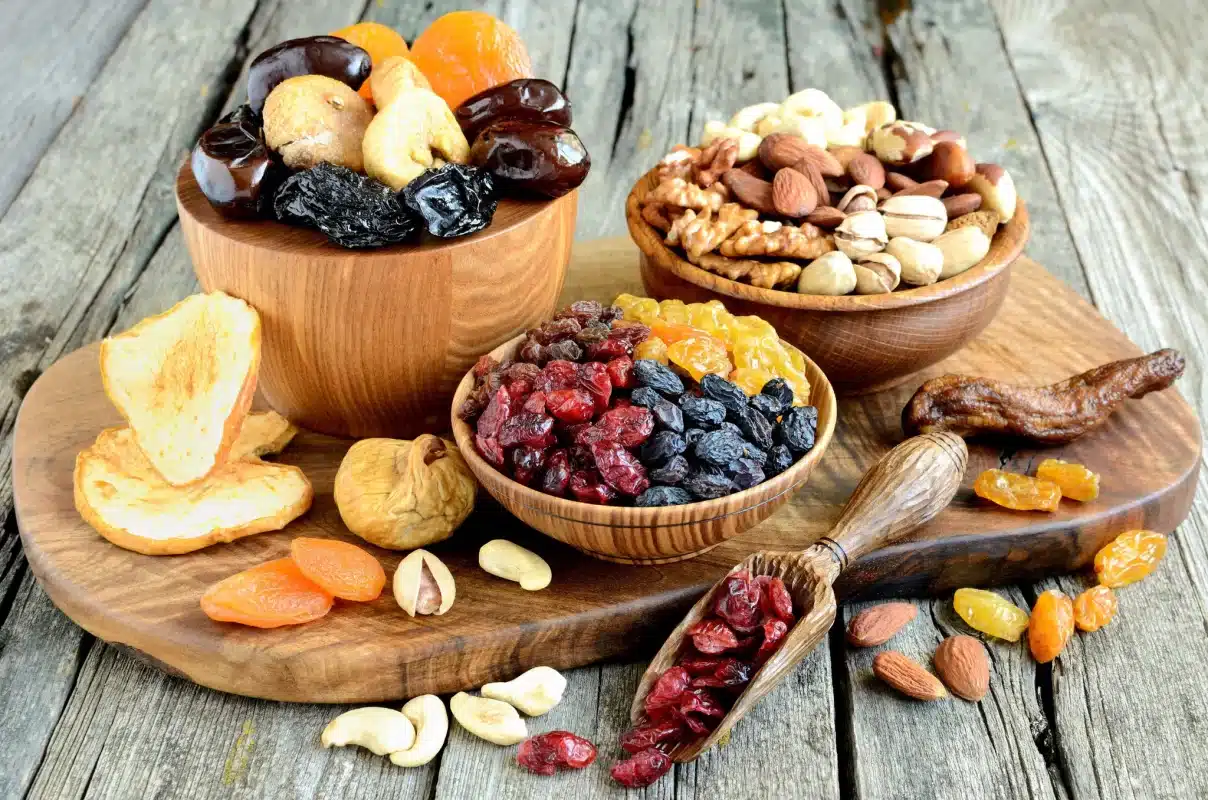Tag Archives: which dry fruits should not be eaten together
Even though it might seem like a healthy choice to snack on a handful of dry fruits, there are some mixes that might not be as good for your health and gut system. Combining foods is an old practice that comes from Ayurveda and other traditional medical systems. It is based on the idea that different foods have different digestive needs, and putting some types of foods together may make your stomach hurt or make it harder for your body to absorb nutrients. Sometimes mixing certain types of dry fruits can make things worse, even though they are full of good things for you like vitamins, fiber, and important nutrients. This guide will tell you which dry fruits you shouldn’t eat with other dry fruits and explain why.
- Dates and milk
Dates have a lot of natural sugars, fiber, vitamins, and minerals. Milk has a lot of protein, calcium, and other nutrients. Some people, though, have stomach problems when they eat dates and milk together. Ayurveda says that this mixture is not meant to be eaten together because dates are warming and milk is cooling. This big difference in traits could throw off the gut fire (agni) and cause toxins (ama) to build up in the body. Also, when dates are mixed with milk, the sugar in them may ferment, which could lead to bloating, gas, or pain.
- Bananas and Raisins
Both bananas and raisins are high in nutrients, including minerals, vitamins, and carbs that give you energy. When mixed together, though, they can be hard to stomach, especially for people whose gut isn’t very strong. In general, bananas cool you down, while raisins wake you up. This contradictory nature could make digestion difficult and cause toxins to build up. In addition, both bananas and raisins are high in natural sugars. Eating them together may cause your blood sugar to rise quickly, then drop quickly, leaving you tired and sluggish.
- Almonds and melon
Almonds are full of healthy fats, protein, fiber, vitamins, and minerals. Melon, on the other hand, is known for having a lot of water and being cool. Almonds and fruits can throw off your digestive system if you eat them together. Melons process quickly, but almonds need strong stomach juices to be broken down and absorbed properly. If you eat them together, they might mix in your gut and cause gas to form. Also, eating protein-rich peanuts and water-rich fruits together might make metabolism slower, which could lead to pain or bloating.
- Cashews and pistachios
Both cashews and pistachios are tasty and healthy nuts that are high in protein, healthy fats, and minerals that your body needs. But putting them together might not be the best idea for some people. It’s said that cashews are sweet and heavy, while pistachios are lighter and drier. This mix of different tastes and properties can throw off your digestive system, which could cause indigestion or gas. Also, both walnuts and pistachios have enzyme inhibitors that can make it harder for the body to handle proteins and fats. Eating them together can make the digestion process even more difficult.
- Walnuts and Peanuts
People like to snack on walnuts and peanuts because they are crunchy and taste sweet. Even though each one is good for you in its own way, eating them together might make processing harder. Peanuts are high in protein and don’t change the body’s temperature, while walnuts are high in omega-3 fatty acids and make the body slightly warmer. If you eat these two kinds of nuts together, it might be hard to digest them, especially if your digestive fire is weak. Also, both peanuts and walnuts contain phytic acid, which can stop the body from absorbing minerals like iron and zinc when eaten in large amounts.
- Apricots and Prunes
Both apricots and prunes are dried foods that are known to help with regularity and passing stools. On their own, they are great sources of fiber, vitamins, and minerals. But eating apricots and prunes together can make you get too much fiber and sorbitol, a natural sugar alcohol that some foods contain. People who already have weak stomachs or irritable bowel syndrome (IBS) may get diarrhea or other stomach problems from this mix. To keep your digestive system healthy, it’s best to eat these dried fruits in balance and drink a lot of water.
- Figs and Pine Nuts
Figs are a very healthy food that are full of fiber, vitamins, and minerals. Pine nuts, on the other hand, are full of healthy fats, protein, and antioxidants. Both things are good for you in their own ways, but eating them together might not be the best for stomach. In terms of how they affect the body, figs cool it down while pine nuts warm it up. This change in temperature qualities can throw off your digestive system, which can cause indigestion or other problems, especially if you eat a lot of it. Another thing is that both figs and pine nuts have enzyme inhibitors that can make processing harder if you eat them together.
In conclusion, dry fruits are healthy and a handy way to snack, but it’s important to be aware of how you mix them to support good nutrition and health in general. Avoiding foods that don’t go well together, like dates and milk or bananas and raisins, can help your body absorb nutrients better and avoid stomach problems. Instead, eat dry fruits with foods that go well with them or by themselves as a healthy and filling lunch. Always pay attention to what your body is telling you and make decisions that are in line with your digestive needs and tastes.



